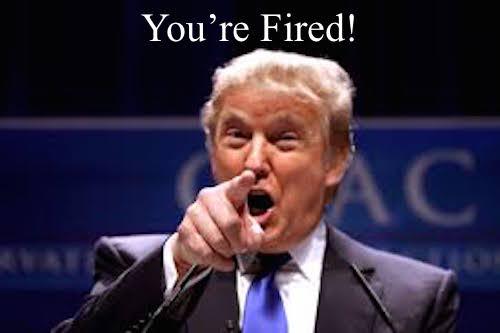You’re Fired: Trump Plans Changes to Federal Workforce

By Olivia Grady
President-elect Donald Trump won the presidential election in large part because he offered change. Americans were tired of the crony capitalism, corruption, do-nothing government bureaucrats and the DC arrogance.
Trump has a plan for all these problems, most particularly for government bureaucrats.
One of Trump’s “[s]ix measures to clean up the corruption and special interest collusion in Washington, DC” is: “a hiring freeze on all federal employees to reduce the federal workforce through attrition (exempting military, public safety, and public health).” This was part of Donald Trump’s Contract with the American voter, which gave his 100-day action plan.
Former Speaker of the House Newt Gingrich, an adviser on Trump’s transition team, said, “We’re going to have to get the country to understand how big the problem [big government] is, the human costs of it and why it’s absolutely essential to reform.”
Trump can begin reducing the size of the federal government by freezing hiring with an executive order or instructions to federal agencies.
Other possible labor reforms could include ending automatic raises, firing substandard workers, banning union work that uses taxpayer money (known as "official time"), and eliminating parts of the Environmental Protection Agency.
President-elect Trump will likely ask for guidance from Wisconsin Governor Scott Walker (R) and Vice-President-elect Mike Pence (R-Indiana) because both governors reformed government employment of state workers.
Representative Jason Chaffetz (R-Utah), Chairman of the House Committee on Oversight and Government Reform, and other Republicans agree with Trump’s plan to make it easier to fire incompetent or troublesome workers.
Government employees are currently fired at one-sixth the rate that private workers are, and senior executives are fired even less at one-twentieth the rate that private CEOs are.
A civil service expert at New York University, Paul Light, agreed that changes are needed, "The civil service system fails at almost everything it was designed to do. It's very slow at hiring, negligent in disciplining, permissive in promoting."
Chaffetz has additional plans to change retirement benefits to a 401(k)-type plan that is market-driven.
And how have unions responded to these bold reform ideas?
“I think it’s fair to say federal employees are going to be facing a number of challenges ahead,” said Tony Reardon, president of the National Treasury Employees Union.
“We’re going to have to work really hard to educate the new administration about federal employee issues and the support they need to perform their mission on behalf of the American public.”
Democrat politicians agree. Representative Gerald Connolly (D-Virginia), worried about his district that has many federal workers, said, "What study are they citing saying there are too many federal employees? Are you going to make a bunch of exceptions, in which case your plan looks like Swiss cheese?"
Unionized federal employees have had a sweet deal for a long time. That deal, it seems, is about to be renegotiated.





